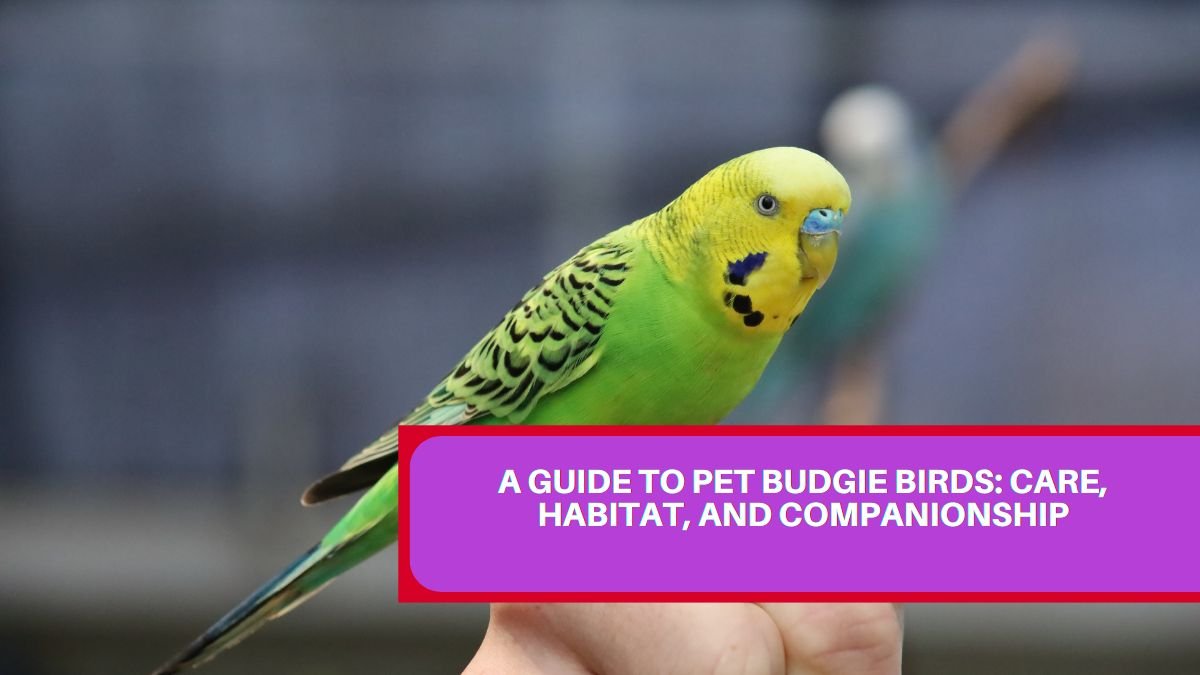Budgerigars, commonly known as budgies, are one of the most popular pet birds worldwide. With their vibrant colors, playful personalities, and ability to mimic sounds, budgies can make delightful companions for bird enthusiasts and casual pet owners alike. This comprehensive guide covers everything you need to know about caring for budgies, including their habitat, diet, health care, and socialization.
1. Understanding Budgie Birds
Origin and Characteristics
Budgies are small parrots native to Australia, where they thrive in flocks in the wild. They come in a variety of colors, including green, yellow, blue, and white, often with unique patterns. Adult budgies typically measure around 7 inches in length, and their lifespan can range from 5 to 15 years, depending on their care and environment.
Personality and Behavior
Budgies are known for their lively and curious nature. They are social birds that enjoy interacting with their owners and can form strong bonds with humans. With proper training, budgies can learn to mimic words and phrases, making them entertaining companions.
2. Setting Up the Perfect Habitat
Cage Selection
When choosing a cage for your budgie, opt for a spacious one that allows for ample movement. A cage measuring at least 18 inches wide, 18 inches deep, and 24 inches high is ideal. The spacing between the bars should be no more than 0.5 inches to prevent escapes or injuries.
Cage Accessories
- Perches: Provide multiple perches of varying diameters and textures to promote foot health.
- Toys: Budgies are playful and need mental stimulation. Offer toys such as swings, ladders, and chewable items.
- Food and Water Dishes: Use separate bowls for food and fresh water, and place them at different locations within the cage.
Location
Place the cage in a well-lit area, avoiding direct sunlight and drafts. Budgies thrive in a lively environment, so consider placing the cage in a room where they can interact with family members.
3. Nutrition and Diet
Basic Diet
A balanced diet is crucial for the health of your budgie. The main components of their diet should include:
- Pellets: High-quality pellets formulated for budgies provide essential vitamins and minerals.
- Seeds: While seeds are a favorite, they should only make up a small portion of their diet due to high fat content. Look for seed mixes specifically designed for budgies.
- Fresh Fruits and Vegetables: Introduce a variety of fruits (such as apples, berries, and bananas) and vegetables (like spinach, carrots, and peas) to enrich their diet.
Hydration
Fresh water should be available at all times. Change the water daily to ensure it remains clean.
4. Health Care and Monitoring
Regular Check-ups
Routine veterinary visits are essential for monitoring your budgie’s health. An avian veterinarian can provide vaccinations, perform health checks, and address any concerns.
Common Health Issues
Budgies can be prone to several health issues, including:
- Feather Plucking: This can be due to stress or boredom. Ensure they have adequate stimulation.
- Respiratory Problems: Symptoms include wheezing or nasal discharge. Seek veterinary care if you notice these signs.
- Digestive Issues: Diarrhea or changes in droppings can indicate dietary problems or illness.
Signs of Illness
Monitor your budgie for any changes in behavior, eating habits, or appearance. Early detection of illness is crucial for successful treatment.
5. Socialization and Interaction
Bonding with Your Budgie
Spending time with your budgie is vital for building trust and companionship. Start by talking softly to them and offering treats to create a positive association.
Training
Training your budgie can be a rewarding experience. Begin with simple commands, such as “step up,” and gradually introduce more complex tricks. Positive reinforcement, such as praise or treats, works best.
Playtime
Allow your budgie time outside the cage for exercise and exploration. Ensure the environment is safe and free from hazards, such as open windows or toxic plants.
6. Enrichment and Mental Stimulation
Toys and Activities
Provide a variety of toys to keep your budgie entertained. Rotate toys regularly to maintain their interest. Engage your budgie with activities like foraging, where they search for hidden treats.
Social Interaction
Budgies are social creatures that thrive in the company of other birds. If possible, consider getting a second budgie to provide companionship and social interaction.
Conclusion
Budgie birds can be wonderful pets that bring joy and companionship to your life. By understanding their needs for habitat, nutrition, health care, and social interaction, you can create a fulfilling environment for your feathered friend. With proper care and attention, your budgie will thrive, offering you years of happiness and companionship. Whether you’re a seasoned bird owner or a first-time pet parent, the journey with a budgie is sure to be rewarding.
